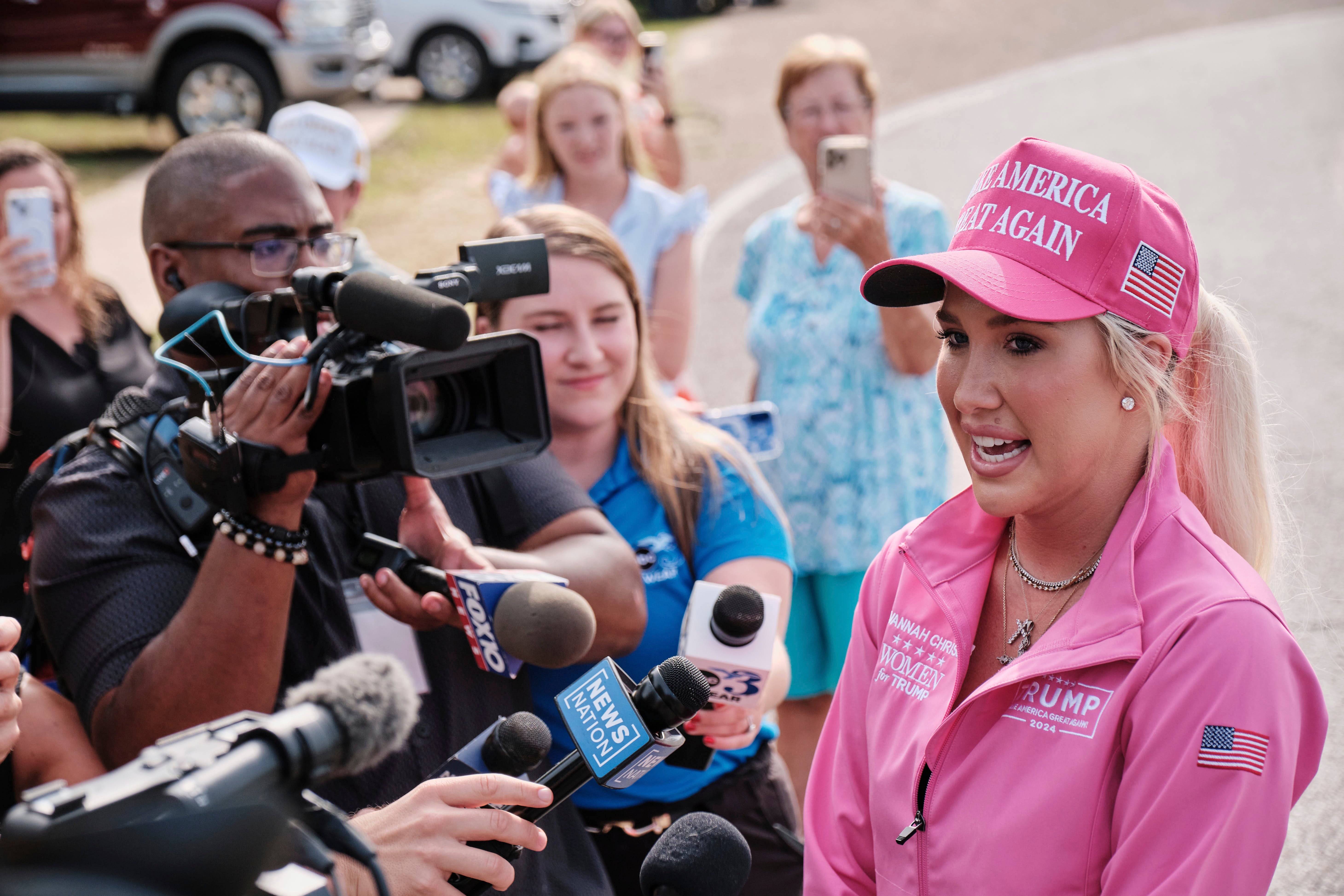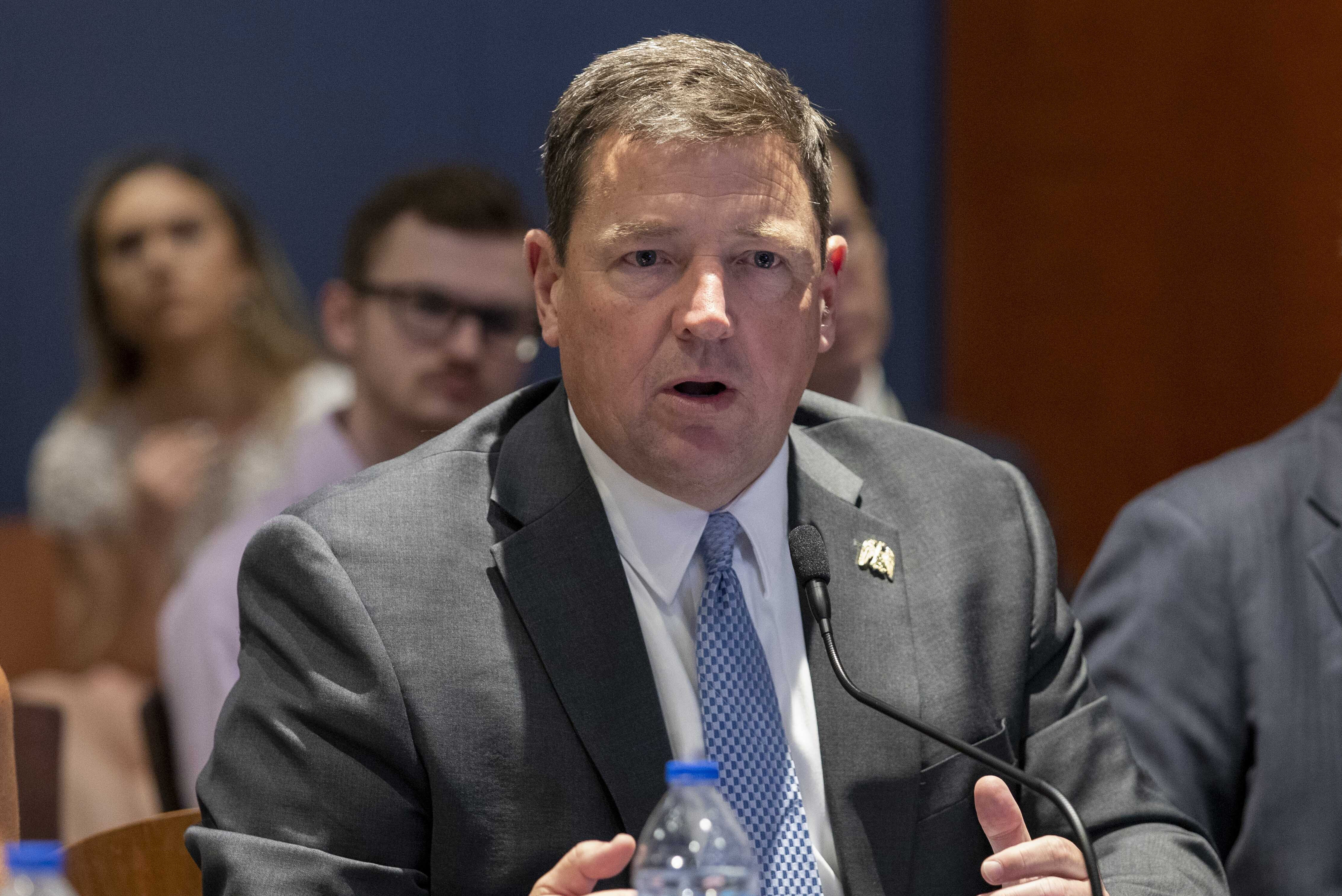Donald Trump went on a pardoning spree this week, granting clemency to gang leaders, reality TV fraudsters, and various white-collar criminals.
Among the colorful characters freed by the president were a conspicuous number of his own supporters and donors, which prompted accusations of corruption and favoritism.
There was also a focus in the pardon list on financial crimes and fraud, both of which Trump has had experience defending himself against.
Norm Eisen, the White House ethics czar under Barack Obama and executive chair of the Democracy Defenders Fund, tells The Independent that Trump’s choice of whom to pardon has a lot to do with the president recasting his own past legal troubles.
“As Trump himself is a 34-time convicted felon, he wants to make the point that the system is unjust in order to expiate his own guilt. He can do that by pardoning individuals, particularly those who have politically supported him, and by claiming that their prosecutions, too, were unmerited,” he says.
“The facts in these cases are to the contrary, and these are pardons that no normal president of either party would have made.”
Perhaps the most baffling of all was Trump’s decision to commute six life sentences given to Larry Hoover, founder of a Chicago gang, for conspiracy, extortion and drug charges in the 1970s.
Hoover was the founder of the notorious Gangster Disciples and was described by prosecutors as “one of the most notorious criminals in Illinois history.” He was convicted again while in jail of running the gang from behind prison walls.
Hoover, now 74, has since renounced his criminal past, and in recent years his case has attracted the support of a number of high-profile figures in the hip-hop scene.
Trump is not known to be a fan of hip-hop, nor is he a believer in giving gang leaders a second chance, but during his first term he made liberal use of the presidential pardon to form relationships with well-known rappers including Kanye West, Snoop Dogg and Lil Wayne, the latter of whom himself received a pardon from Trump.
Those relationships allowed Trump to build superficial inroads into the hip-hop community, likely in an attempt to appeal to Black male voters without fundamentally altering his policies to address their wider concerns.
Charles Blow, writing in The New York Times, called the pardons “a cheap and easy way to win favor with a few big names,” while Harvard professor Brandon Terry said they “feed that kind of heroic, solidaristic picture of him as a strongman dispensing favor to people who stay in line.”
The Hoover pardon appears to fit that bill. Hoover was first brought to Trump’s attention by West during Trump’s first term in office, when the pair formed a close relationship.

Trump also pardoned NBA YoungBoy, a Louisiana rapper whose real name is Kentrell Gaulden, likely for the same reason. Gaulden was sentenced in 2025 to just under two years in prison on gun-related charges.
Michael Harris, the co-founder of Death Row Records, who spent decades in prison on drug charges, also received a full pardon. Harris had his sentence commuted by Trump during the president’s first term.
Hoover will not be a free man, however. Instead, he will be moved from the federal supermax prison in Colorado to a state prison in Illinois, where he will serve the rest of his 200-year sentence for a litany of crimes he was convicted of in a state court.
That wrinkle appeared to be lost on West, who posted on X (Twitter): “WORDS CAN’T EXPRESS MY GRATITUDE FOR OUR DEVOTED ENDURING PRESIDENT DONALD TRUMP FOR FREEING LARRY HOOVER.”
Mark Osler, a professor at the University of St. Thomas School of Law in Minneapolis and an expert on clemency reform, says Trump’s commutation of Hoover’s sentence sets him apart from other presidents.
“One notable thing that hasn’t gotten much notice is that Trump is unique in his willingness to grant clemency to those who have been convicted of violent crimes, including Larry Hoover and some of the J6 recipients,” he tells The Independent, referring to the president’s pardons for more than 1,500 Capitol rioters earlier this year.
“This has been on the far side of a bright line for other presidents, who have focused on ‘non-violent’ offenses in cases that don’t involve the death penalty,” he adds.
The rest of Trump’s pardons were more in character, but no less controversial. Among their recipients were Republican politicians, donors and supporters — many of them convicted for fraud, a crime that Trump’s businesses have been accused of and denied for many years, and that Trump himself was convicted of in 2014.
He pardoned former Connecticut governor John Rowland, a Republican who served from 1995 to 2004, who was sentenced to 30 months in federal prison for charges related to concealing his involvement in two federal election campaigns.
Roberto Alves, chair of Connecticut’s Democratic Party, said the former governor’s behavior “was condemned by Democrats and Republicans” who worked together in the aftermath of the case to pass “landmark legislation to bring more accountability to elections and state contracting.”

“To erase our state’s reckoning with corruption is disrespectful of Connecticut law and a shameful misuse of pardon power,” he added.
Trump also pardoned Michael Grimm, a Republican from New York who resigned from Congress after being convicted of tax fraud in 2014. Both men had already served their sentences.
It was not difficult to figure out why Trump, a billionaire former reality TV star, pardoned Todd and Julie Chrisley, a multimillionaire Trump-supporting former reality TV star couple, whose show Chrisley Knows Best ran from 2014 to 2023 on basic cable.
They were serving prison sentences after being convicted of tax evasion and bank fraud in 2022.
Their daughter, Savannah Chrisley, who pushed for the pardon, revealed in an interview that Trump had said her parents “didn’t look like terrorists” and that he wanted to give them “the full pardon.”
Critics have seized upon this decision to accuse the administration of “blatant corruption.”

Perhaps the most controversial pardon was that given to Paul Walczak, a 55-year-old former nursing home executive who pleaded guilty to tax crimes days after the 2024 election.
Earlier this year, Walczak submitted a pardon application that focused heavily on the political and fundraising activity of his mother, Elizabeth Fago, who raised millions of dollars for Trump’s campaigns, according to The New York Times.
His pardon came less than three weeks after Fago attended a $1-million-per-person fundraising dinner at Trump’s Mar-a-Lago resort that promised face-to-face access to the president.
The pardon meant that Walczak would not have to pay $4.4 million in restitution and would escape an 18-month prison sentence.
Liz Oyer, a former pardon attorney at the Department of Justice who was fired from her post in the house-cleaning earlier this year, called Trump’s use of pardons “unprecedented.”
“This administration appears to be using pardons in a completely different and new way, which is to reward people who demonstrate political loyalty to the administration,” she told PBS.
Trump’s flurry of pardons did not come out of nowhere. They were given a kickstart following the appointment of the new Department of Justice pardon attorney, Ed Martin, earlier this month. The post is traditionally held by a non-political appointee; Martin is not that.
Martin was the acting U.S. attorney in the first weeks of the second Trump administration, during which time he oversaw the dismissal of hundreds of Capitol riot cases and demoted a number of prosecutors involved in these cases.

He previously described Jan. 6 as “Mardi Gras in D.C.” and helped organize the “Stop the Steal” campaign to reverse Trump’s 2020 election loss. He has raised money for Jan. 6 defendants and even represented some of them.
Following the pardon of Virginia Sheriff Scott Jenkins, who was convicted of bribery, Martin tweeted: “No MAGA left behind.”
Oyer, Martin’s predecessor, said his appointment “sends a message that the pardon power is now being totally and thoroughly politicized, that it will be used as a benefit to those who are supporters of the president and not for those who do not express political loyalty.”
Trump’s flurry of pardons this week has attracted attention for their partisan nature and the colorful characters he has chosen to release. But they pale in comparison to those he issued in his first weeks in office, when he pardoned more than 1,500 Capitol rioters, many of whom had been convicted of violent offenses.
Back in January, Dr. Heidi Beirich, the co-founder of the Global Project Against Hate and Extremism, told The Independent that those pardons would revitalize a weakened extremist militia movement.
“By letting violent white supremacists and militia types who engaged in this activity out of prison, he has emboldened those movements, made them more powerful, and given them the sanction of the highest office,” she said.
Trump commutes notorious gangster’s sentence... thanks to Kanye West
Todd and Julie Chrisley have new reality series in the works after Trump pardon, daughter confirms
Trump pardons rapper NBA Youngboy, who was sentenced for gun-related charges
Todd Chrisley speaks out after Trump’s pardon that freed him from prison
Trump to host Elon Musk in Oval Office as DOGE maestro departs administration: Live
Trump can revoke humanitarian protections for 500,000 immigrants, Supreme Court says







